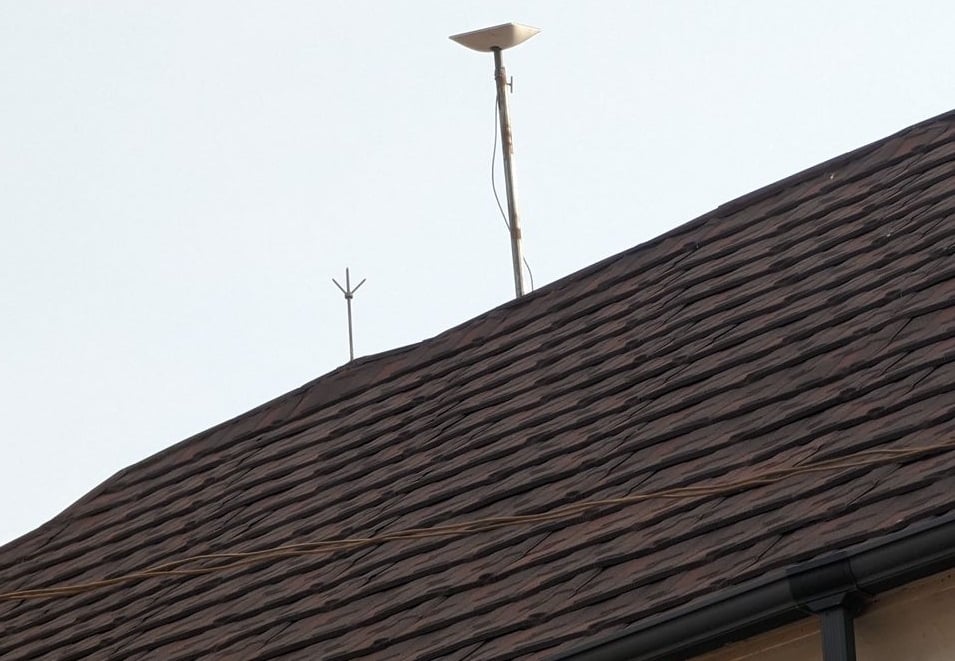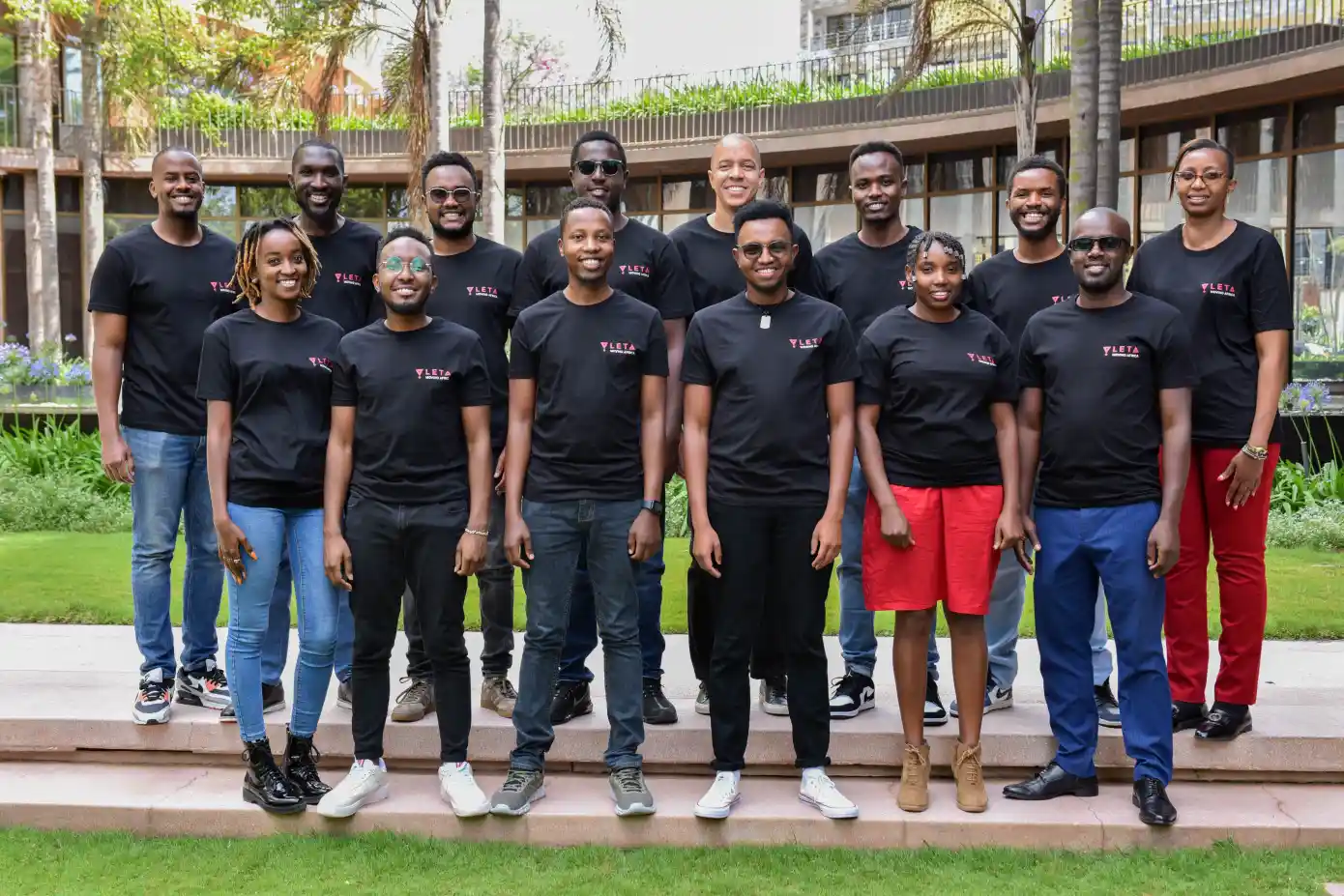Bonjour,
Victoria from Techpoint here,
Here’s what I’ve got for you today:
- Zimbabwe gold-backed currency declines by 43%
- Starlink’s a step closer to launching in SA
- Accrue bags $1.58M seed
Zimbabwe gold-backed currency declines by 43% in 8 months

In April 2024, the Zimbabwe Gold (ZiG) was introduced to replace the Zimbabwean dollar and boost the economy. However, in May, the currency declined, losing 0.8% against the dollar.
Fast forward to 8 months later, The East African reported that the ZiG — backed by 2.5 tonnes of gold and the central bank’s foreign currency reserves of $100 million — has already been devalued by 43% to narrow the gap between official and black market exchange rates.
To keep the currency afloat, the government tightened the money supply, which unfortunately led to businesses struggling and even shutting down, causing significant job losses.
Big names like Choppies Enterprises and Unilever have exited the Zimbabwean market due to these currency issues. Even PricewaterhouseCoopers has pulled out. On top of that, Tongaat Hulett, the country’s leading sugar producer, announced plans to lay off 1,000 employees by August to cope with the economic challenges.
The situation has driven consumers toward informal markets, where goods are often cheaper. These markets, operating in places like car parks and verandahs, avoid the overhead costs that formal retailers face, such as energy expenses and taxes. As a result, traditional stores are finding it hard to compete, leading to potential closures. citeturn0news24
Despite these hurdles, the Zimbabwean government remains optimistic. They’re projecting a 6% economic growth in 2025, banking on better agricultural output and power generation after this year’s drought. However, the public’s trust in the new currency is shaky, with many still preferring to use the U.S. dollar for transactions.
It’s a tough situation, and only time will tell how things will unfold for Zimbabwe’s economy.
Starlink’s a step closer to launching in SA

So, South Africa is finally trying to fix its messy telecom policies to make it easier for companies like SpaceX’s Starlink to set up shop in the country. For years, the telecom sector was stuck in limbo because of ownership rules that required national service providers to be 30% owned by historically disadvantaged groups or black South Africans. These rules were never fully implemented, leaving everyone in the industry hanging.
And now? Communications Minister Solly Malatsi has stepped in with plans for “equity equivalent programmes.” Per MyBroadband, these would let foreign companies invest in South Africa’s telecom market without needing to meet the strict ownership requirements. It’s all about creating more competition, lowering data prices, and improving Internet access for everyone.
And guess what? Starlink’s name came up a lot during this announcement. If you don’t know, which I doubt you do unless you live under a rock, Starlink is Elon Musk’s satellite Internet service that’s been making waves globally.
President Cyril Ramaphosa even had a chat with Musk last year, basically saying, “Elon, come invest in your home country.” Starlink was supposed to launch in South Africa in 2021, but those ownership rules and the overall policy confusion put everything on pause.
While Starlink has rolled out to several African countries like Ghana, Kenya, Nigeria, Botswana, and Zimbabwe, it’s been super slow across the continent. Where it has launched, the demand is insane — like so high they’ve had to stop taking new orders in places like Harare and Nairobi because they ran out of satellite capacity.
For South Africa, these new equity programmes might finally pave the way for Starlink to launch and shake up the market. With competition heating up, we might see faster, more affordable Internet becoming the norm, not just a luxury. Let’s hope this time, the plans stick, and South Africa gets the digital boost it needs.
Accrue bags $1.58M seed

Accrue just bagged $1.58 million in seed funding, led by Lattice Fund, with backers like Kraynos Capital, Distributed Capital, Lava, and Maven 11 hopping on board. The plan? Grow its payment infrastructure, beef up the team, and fine-tune its products.
Here’s the backstory: Founded in 2021 by Zino Asamaige, Adesuwa Omoruyi, and Clinton Mbah (all ex-Helicarrier employees), Accrue started as a platform making crypto investing easy for everyday users. It gained momentum during the crypto boom, but when the market took a nosedive in 2022, they quickly pivoted. Now, they’re laser-focused on solving a huge problem in Africa — cross-border payments.
Using an agent network model, inspired by heavyweights like MPESA and Moniepoint, Accrue’s solution gets money across borders in under five minutes. That’s a game-changer, especially in areas with poor banking infrastructure. The startup is already making moves in eight countries, including Nigeria, Ghana, Kenya, South Africa, and Uganda, with over 200,000 users tapping into their platform.
Accrue makes money in a few ways: transaction fees, penalties for stopping auto-investment plans early (1.5%), and forex spreads. While they’ve held onto their crypto investment feature, they decided in 2024 to drop stock trading so they could double down on core services like dollar savings and virtual cards for online payments.
The bigger picture? Cross-border payments in Africa are still a massive headache — expensive, slow, and inaccessible to many. Accrue and others are tackling this by using stablecoins, which are pegged to the US dollar, to offer faster, more reliable transactions. It’s a smart workaround for traditional banking inefficiencies.
As Accrue keeps growing and sharpening its services, it’s clear they’re carving out a solid spot in Africa’s buzzing fintech space, making life easier for people navigating the tricky world of cross-border payments.
In case you missed them
- Nigeria, South Africa, Egypt to drive Africa’s economic growth in 2025
- KCB Bank and Mastercard debut Kenya’s first multi-currency prepaid card
What I’m watching
- Christian vs Former Christian Women | The Bridge
- How Cults Use Language to Control | Otherwords
Opportunities
- Meta is looking for a Public Policy Manager in Anglophone West Africa. Apply here.
- MasterCard is hiring a Manager for Product Management in Emerging Markets Acceptance Solutions. Apply here.
- AltSchool Africa is hiring several instructors. Apply here.
- Fast Forward Livestock Innovation Lab, in partnership with GIZ-SAIS, offers innovators the chance to turn their prototypes into commercially viable solutions for the livestock value chain, with up to ₦10 million in funding, expert mentorship, and guidance from an Entrepreneur-in-Residence. Apply here.
- The World Health Organization (WHO) is recruiting suitably qualified candidates to fill several roles. Apply here.
- Glovo is looking to fill certain roles in Nigeria, Kenya, Uganda and Morocco. Apply here.
- Kuda is looking to fill different roles. Apply here.
- Paystack is hiring for several roles. Apply here.
- Techpoint Africa is hiring a Market Research and Innovation Analyst. Apply here.
- Moniepoint is hiring for several roles. Apply here.
- Celebrate the New Year with delightful stories like Smart Couples. Call 421 on your Airtel line now — you won’t be charged! Alternatively, call 07080601391 at your network’s regular rate. Learn more here.
- Follow Techpoint Africa’s WhatsApp channel to stay on top of the latest trends and news in the African tech space here.
Have a productive week!
Victoria Fakiya for Techpoint Africa.










